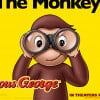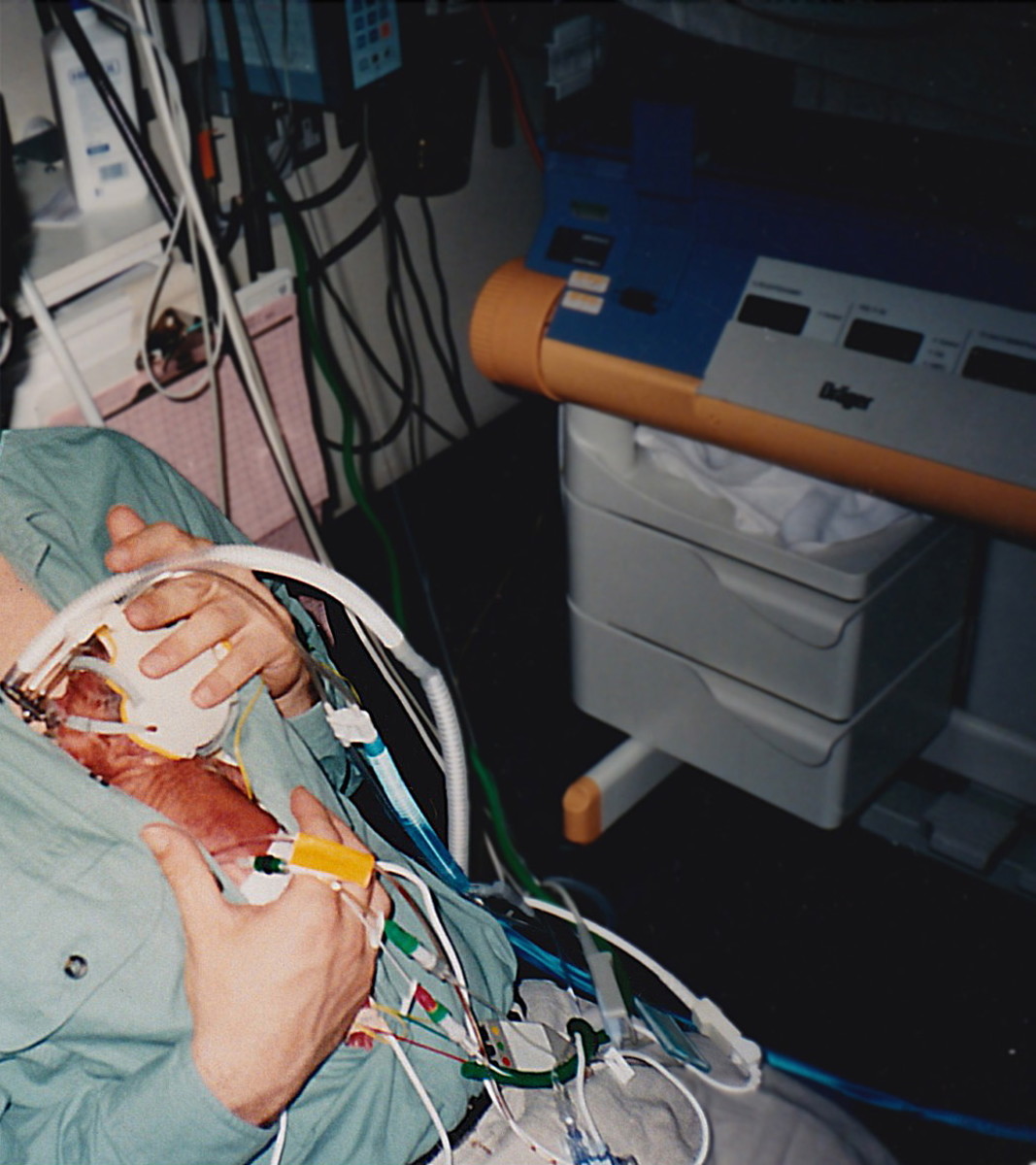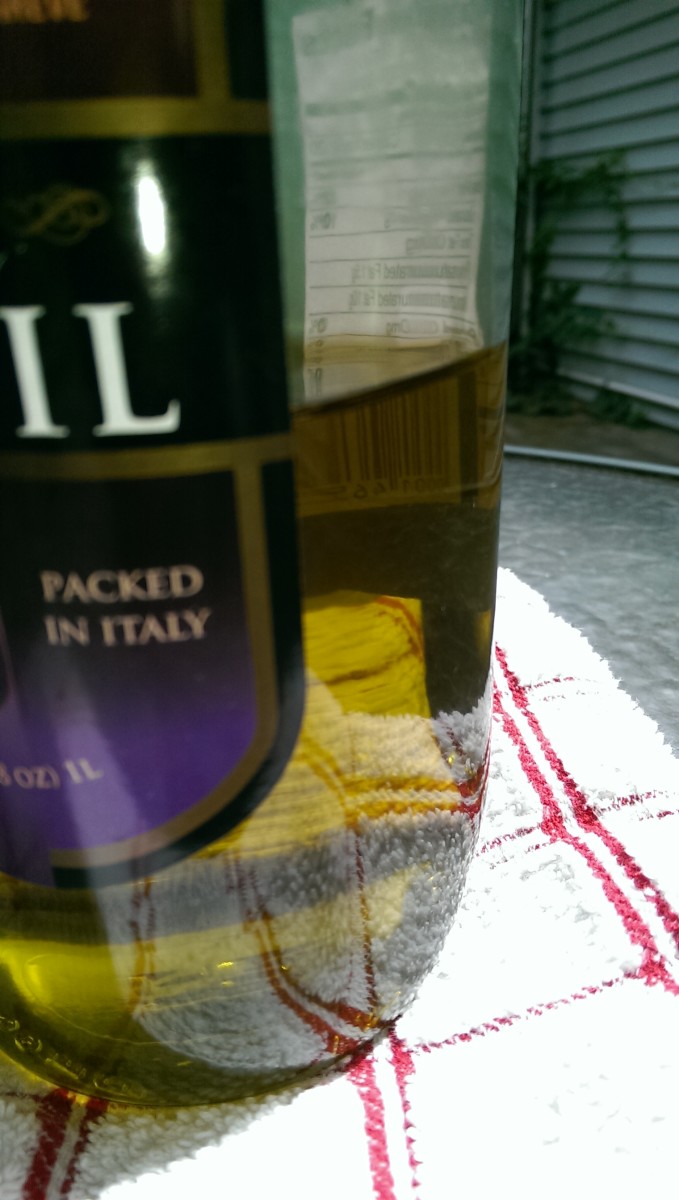Acupunture Anesthesia - An Alternative Look At Conventional Anesthesia.
Acupunture Chart
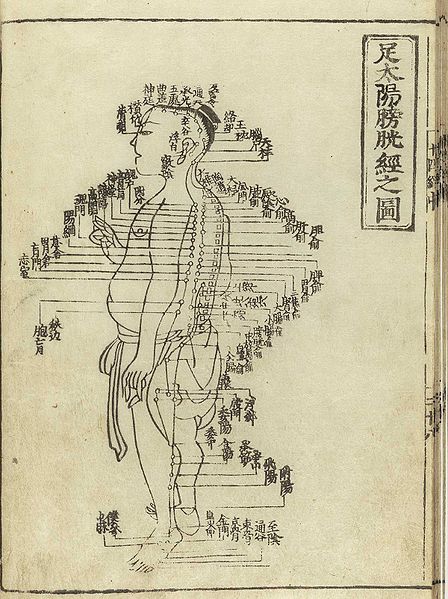
* The research presented in this article is intended for information purposes only. If you are debating whether acupuncture anesthesia is an option for you, consult your physician first.
Anyone who has experienced a major or minor surgery, can truly appreciate firsthand the great strides and advancements made in the world of anesthesia.
According to the book, We Have Conquered Pain: The Discovery of Anesthesia, author Dennis Brindell Fradin, wrote: Surgeons were known to enter the operating room with a bottle of whiskey in each hand - one for the patient and the other for the doctor so that he could endure his patient’s screams.”
This was no doubt due to the crude and antiquated practice of anesthesia at that day and age. In an effort to reduce the pain and agony of surgery, physicians, dentist, and patients would do and try almost anything to make the procedure go by as quickly and as pain free as possible.
Pain management therefore took on the form of either getting drunk with alcohol, or getting high with opium or other drugs readily available. Unfortunately, pain relief; at least prior to the 1840’s in the Western World; was far from satisfactory.
Thanks to an age-old Chinese medical technique, in addition to its normal use for a variety of illnesses, some Western physicians have adopted a form of anesthesia that involves the use of acupuncture.
As strange and foreign as anesthesia by way of acupuncture sounds, medical authorities have testified to the supposed effectiveness of this unique (to Western medicine) and alternative method of anesthesia.
* Acupuncture as Anesthesia? What The Medical Authorities Have Observed.
In May of 1971, the first Americans recorded to observe the use of acupuncture as anesthesia in China were two biologist; Dr. Ethan Signer, Professor Emeritus (retired) of Biology of the Massachusetts Institute of Technology and late Dr. Arthur William Galston of Yale University.
However, since neither was considered authorities on medicine, their findings met with extreme skepticism. In the fall of 1971, this attitude would quickly change.
In September 1971, four respected American medical authorities made a visit to China (a first in over 20 years) that would influenced their views on acupuncture all together.
Amongst these four visitors included:
- The late Dr. Paul Dudley White of Boston; an internationally renowned heart specialist and a former consultant to the late President Eisenhower.
- The late Dr. Samuel Rosen, a New York City ear surgeon.
- Dr. Victor W. Sidel, Chief of the Department of Social Medicine at Monefiore Hospital in New York City.
- Dr. E. Grey Dimond, emeritus (retired) Provost for Health Sciences and founder of the University of Missouri-Kansas City Medical School.
In addition to the extensive acupuncture demonstrations, these four physicians were astonished to witness major operations where the only anesthesia used was acupuncture.
The Medical Tribune of that year reported on the success of acupuncture as an effective anesthetic when it stated, “Dr. White and Dr. Dimond, both cardiologists, watched open heart surgery in Peking with acupuncture anesthesia. They said that the patient was awake, alert, relaxed during surgery, and that the surgery was performed as well as any they had ever seen.”
In addition, the late Dr. Rosen himself, reported observing and witnessing fifteen procedures using acupuncture as anesthesia that included:
- An appendectomy
- A tooth extraction
- The removal of a lung
- A brain-tumor operation
- The removal of an ovarian cyst
- An tonsillectomy
- An herniotomy
- A Cesarean birth …. Amongst other procedures.
He evaluated “When you see these operations, you come out and pinch yourself. You wonder if you really saw what you saw. After you have seen it over and over, you have to give up what you thought in favor of what you saw.”
To prove to his colleagues the effectiveness of acupuncture as an effective form of anesthesia, Dr. Rosen brought back to the U.S. a 30-minute film that included some of the very procedures he witnessed with his own eyes.
This 30-minute film included surgeons correcting a heart defect while the patient sipped tea through a straw, a mother beaming at her newborn son just moments after his birth via Cesarean surgery, as well as surgeons removing part of a fully alert and smiling woman’s spinal cord. All surgeries using acupuncture as anesthesia.
In addition to these four medical authorities, the lateDr. Walter Tkach, who served as the personal physician to three United States presidents, was himself exposed to the effectiveness of acupuncture anesthesia.
The procedures he witnessed involved these steps: 1.) the acupuncture needles being twirled between the forefinger and thumb of the acupuncturist, 2.) a quick insertion of the needles, and 3.) instead of vibration performed by hand, the needles were attached to an electrical device to vibrate them.
What did Dr. Tkach’s conclude about this unique experience?
He stated, “I was impressed from the beginning. And frankly I was astonished when each of the patients got up form the operating table with little or no help and walked unassisted to the carts that were to take them back to their rooms; I have seen nothing like that in 25 years of association with surgery.”
What was the decisive factor? - “The clincher came nearly an hour after we left the OR. We were in a room when the door opened and all three patients were usher in. They were comfortable and able to drink tea with us and answer our questions.”
The Doctor concluded: “There is something important here we should take a good look at”. He added, “I know that I would not hesitate to receive the procedure myself.”
This Video Contains Images Of Real Live Surgeries - If You Have A Weak Stomach, This Video May Not Be For You.
* If Acupuncture Anesthesia Is So Effective, Why Is There A Reluctance to Use It More Often In Western Medicine?
While the use of acupuncture anesthesia has been in use for some time in Chinese medicine, the adopting of this technique in the Western World of medicine has taken some time because the “science” behind the procedure is not clear.
The basic idea behind acupuncture, according to the Website book of doctors.com, involves a “procedure in which specific body areas associated with peripheral nerves are pierced with fine needles to produce anesthesia, relieve pain, and promote therapy … (as well as) for therapeutic purposes or to relieve pain or produce regional anesthesia,” still the “science” behind how it works is not precise.
While some explanations involve electrical impulses and nerve connections, an archival issue of Medical World News stated, “Research in the Soviet Union and other countries indicates that reflexes between points on the skin and internal organs are involved.”
Due to this lack of "scientific proof", it comes as no surprise that some have and still suggest that acupuncture is just another form of hypnosis.
In the early 70’s a Dr. Robert Kerland, an American orthopedist compared acupuncture to drinking from the water of Lourdes, or having Oral Roberts touch people who then shout “I’m cured!” There are countless others who would agree with Dr. Kerland, then there are those on the other side of the coin.
The late Dr. Rosen noted that in addition to their human patients, the Chinese have produced general anesthesia in animals by way of acupuncture, as well as the French who have conducted experiments on animals that showed the success of acupuncture anesthesia couldn’t possibly be contributed to hypnosis or suggestion.
In addition, the Doctor stated, “There is a lot of skepticism about how aspirin works too, but people still take aspirin when they have a headache.” He went on to state that even their Chinese colleagues had also been skeptical, but due to the evidence, “they finally had to bow to the evidence of their sense.”
* Acupuncture Anesthesia The Proof of Burden Here In The U.S.
From the very start of acupuncture anesthesia, the experiments deemed to be a success. Since 1966, approximately about 500,000 procedures have been preformed, but what has the evidence stated here in the U.S.?
In 1972, instead of conventional anesthesia, Americans undertook at least nine operations using acupuncture anesthesia.
At least two of the procedures took place at the Albert Einstein College of Medicine in New York City. One of the patients attended to, underwent a skin-graft surgery procedure in which the only anesthesia entailed the placement of five needles interested into his body.
What were the results? Just ten minutes after surgery, the patient was ready for a hearty meal, and stated this surgery with the use of acupuncture as anesthesia was vastly superior to a previous operation he had undergone with the use of conventional anesthesia.
In another procedure that used acupuncture as the only form of anesthesia, the patent had a growth removed from his tonsil. While he had undergone a similar procedure, the traditional local anesthesia used cause-excruciating excruciating pain,” whereas the acupuncture anesthesia left him with no pain at all.
These are just a few examples the research has shown regarding the success of acupuncture anesthesia here in the states. However, there are still reports that debate the effectiveness of using acupuncture as an successful form of anesthesia.
Whatever the studies state, and whatever the individual decides to believe, the question remains, what are the benefits and risks of acupuncture anesthesia?
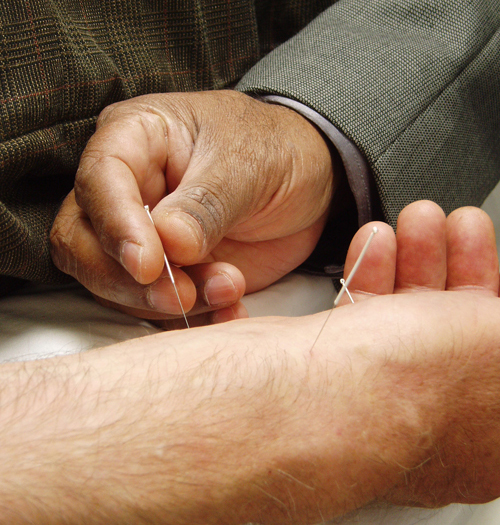
* What Are The Benefits and Risks of Acupuncture Anesthesia?
As with any medical procedure, there are risks and benefits.
The benefits of acupuncture anesthesia include:
- Eliminates the risks of that accompanies drugs or inhalant gas
- Prevents postoperative nausea and vomiting
- Shortens recovering time
- The analgesic effects last up to eight hours or more, after which the reapplication of acupuncture needles may be necessary to ease residual pain.
In addition to these benefits, according to WNDU.com, in 2008 anesthesiologist T.J. Gan M.D. provided another benefit to acupuncture anesthesia.
He stated that ‘acupuncture sparks the release of endorphins and other natural pain killers in the body, making pain medication work more effectively.’
He went on to add, "We have found that by using acupuncture, you can potentially reduce the amount of painkillers that you otherwise would need to use during surgery as well as in some studies suggest that acupuncture can also reduce the amount of anesthetic that you need to provide for the patients.”
Even the benefits of pre-op acupuncture have shown to last far longer than the effects of traditional pre-op drugs.
According to Doctor Gan, “Not only does it benefit the patient immediately post-operatively, there is also increasing evidence to suggest that this will prevent longer-term pain problems.”
Doctor Gan also stated that the pain-relieving benefits of pre-op acupuncture may last far longer than the effects of any drugs, but still believes that even with the benefits of acupuncture anesthesia, it should only be used as a complement to traditional or conventional anesthesia - "For most of the conditions, I think we still need powerful drugs to control pain, but I think acupuncture would be a very useful addition to that regimen.”
The risks of acupuncture anesthesia include:
- Serious accidents when acupuncture needles have pierced the lungs or the heart
- Hepatitis, local infections, and similar complications may occur in the event un-sterilized acupuncture needle are used
In any event, the use of acupuncture anesthesia, general anesthesia, as well as the operation itself carries risks in-of-themselves. It is for this reason that acupuncture of any kind should only be practice by a skilled, medically trained and licensed therapist.
It is vital to note as well, that the use of acupuncture anesthesia is also dependent on the patient’s mental and physical condition. If the patient appears to be extremely tense, nervous, and high-strung, a recommendation that conventional anesthesia be used instead is more plausible.
* What Should I Believe? - Is Acupuncture Anesthesia Worth A Try?
With the debate raging over whether acupuncture in general works or not, and with all the information made available for or against acupuncture anesthesia, in the end it is up to the individual to determine what form of anesthesia is right for him or her.
Whatever choice you make, do your homework. Ask questions. Talk with others who have had experienced this unique and nontraditional form of anesthesia. Look at the pros and the cons. And by all means, consult with your physician first.
The evidence regarding the effectiveness and success of acupuncture anesthesia may seem outdated, or simply the ramblings of medical authorities who are not present to tell their stories. Nevertheless, the record books show that there is a chance that acupuncture anesthesia is as effective as it has been reported to be.
Whether it is used alone, or in combination with more traditional and conventional anesthesia, there has to be something said about its historical and present day success in whatever form it is used.
Prevention magazine said it best when it stated, “One of the reasonable demands of the public upon the medical establishment is that they investigate, carefully and in good faith, the possible uses of acupuncture. In a world full of pain and suffering, we cannot afford to ignore any promising therapy simply because the AMA {American Medical Association} does not understand it.”
If acupuncture anesthesia is something you feel is right for you, ensure that you choose a skilled, licensed and medically trained therapist. Ask to see his or her credentials, and enquire as to how long they have been practicing this alternative form of anesthesia, as well as their success rate.
In closing, a February 20, 1981 edition of the Journal of the American Medical Association stated regarding the use of acupuncture in general, “The evidence now available, however, is sufficient to place this age-old Chinese healing art, modernized to US standards, on a solid scientific base. In the hands of competent physicians, acupuncture is a method free from discomfort or side effects that can, in many cases, bring some relief from the suffering of chronic pain. When patients ask about acupuncture, the answer can now be, with good justification: ‘It may well be worth a try.”
* This link will provide you with a listing of physicians who use acupuncture in their medical practices - http://www.bookofdoctors.com/tek9.asp?pg=search&category=1&location=all
copyright © 2010
